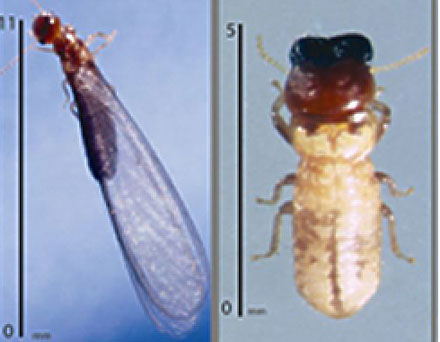 Property owners and other affected parties are being invited to provide feedback on the future management of West Indian drywood termite, particularly who pays for treatment. Source: Timberbiz
Property owners and other affected parties are being invited to provide feedback on the future management of West Indian drywood termite, particularly who pays for treatment. Source: Timberbiz
Queensland Chief Plant Health Manager with Biosecurity Queensland Mike Ashton said the termite is a serious pest of timber used in construction, and it is important that we continue to contain it.
“The Queensland Government’s surveillance and treatment program has successfully confined the pest to sites in Brisbane, Wide Bay, Townsville and Rockhampton,” Mr Ashton said.
“We currently spend around $745,000 on average each year on fumigation, surveillance and related activities for the termite, but if left unchecked it could spread to be a greater problem to property owners in Queensland.
“Under the new Biosecurity Act 2014, which is due to commence on 1 July 2016, a decision needs to be made on how we manage the pest in the future.
“The Act will feature a general biosecurity obligation, which means everyone has a responsibility to mitigate risks and share responsibility, which includes reporting pests.
“While the Act doesn’t specify how we should manage the pest, the government is proposing to continue to control it by fumigation and surveillance.
“However, treatment of West Indian drywood termite is costly, at approximately $42,000 for a three bedroom house, so we are keen to get feedback on managing these costs.”
The consultation offers four funding models for consideration, including:
- government organises treatment with a phase-in of property owner contributions or
- property owners organise and pay for treatments or
- government organises treatment, with owner co-contribution of set costs or
- government continues to organise and pay for all surveillance and treatment.
Mr Ashton said that anyone who has experienced normal termite infestations can appreciate the distress such pests can cause.
The West Indian drywood termite can be even more serious as infestations are difficult to find and can do significant damage to household timber before detection.
“I encourage anyone with an interest in, or if you believe you will be affected by, West Indian drywood termite control to provide feedback,” he said.
The consultation will run until close of business 29 February 2016.
To have your say on the future control of West Indian drywood termites in Queensland, visit www.qld.gov.au/termitesurvey





